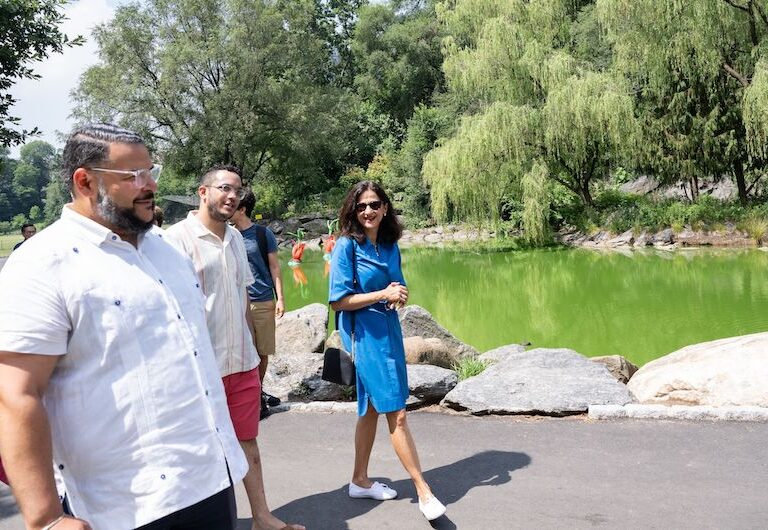Morningside Park sits east of Columbia University’s campus and has enjoyed a long partnership with the University. Each year the Morningside Lights parade takes place in September with the park community, and NYC Parks staff collaborates with Columbia’s community for volunteer activity, programming ideas, and public safety efforts.
NYC Parks created a working group to study the pond in 2021 that included Columbia academics. In 2022, the first study was initiated from that working group, which confirmed the high level of toxicity of the harmful algae bloom (HAB). There is no known solution for HABs.
NYC Parks will now collaborate with scientists at Columbia University’s Climate School to work to improve the condition and possibly find a solution. Columbia’s Climate School is the nation’s first climate school and the leader of educating future climate leaders, supporting groundbreaking research, and fostering essential climate solutions from the community to the planetary scale.
Joaquim Goes, professor of biology and paleo environment at Columbia Climate School’s Lamont-Doherty Earth Observatory, said, “Columbia Climate School scientists have been working to find solutions to HAB outbreaks in large coastal and open ocean water bodies. The Morningside Park pond affords an ideal test bed for us to work collaboratively with students and local communities to find solutions to the HAB problem that is increasingly afflicting many of our city’s larger ponds and lakes.”
At the event, scientists took water samples and allowed the public to view the algae and other micro-organisms under a microscope. NYC Parks Wetlands Team within the Natural Resources Group also provided pamphlets and other educational materials. Friends of Morningside Park will work with both NYC Parks and Columbia University for the duration of the study to engage the local residents in community science opportunities and in the solution effort.

